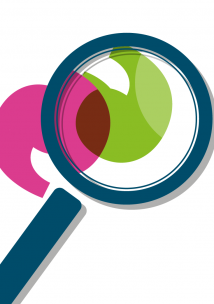Barriers to care - Listening to d/Deaf Rochdale residents voices - Phase 1 Report

Common themes and trends emerged from the feedback, with a key overarching issue being significant barriers to accessing healthcare—primarily due to the lack of availability of deaf interpreters for GP appointments, NHS dental services, and Urgent Care.
Rochdale residents who are d/Deaf told us they needed a British Sign Language (BSL) interpreter for appointments. Even though providing a BSL interpreter is a requirement of the Accessible Information Standard, healthcare professionals don’t always book one when needed. d/Deaf residents told us this therefore meant they had cancelled or rearranged their appointments.
Findings
The main issues identified include:
- Lack of BSL Interpreters: Despite legal obligations under the Accessible Information Standard, healthcare providers frequently fail to book BSL interpreters, leading to missed or postponed appointments. This affects GP visits, hospital care, urgent care, and maternity services.
- Communication Barriers: d/Deaf patients often struggle with written correspondence, which may be complex or require reliance on family members to interpret. Additionally, reliance on telephone communication excludes many d/Deaf individuals, leading to missed appointments or miscommunication.
- Parking Difficulties: Participants reported issues with finding suitable parking spaces, causing delays that sometimes resulted in being refused treatment.
- Lack of Flexibility in Appointment Scheduling: Fixed appointment slots with limited flexibility make it challenging for d/Deaf patients to arrange their preferred interpreters or manage childcare and travel.
- Hospital and Urgent Care Challenges: Incidents of interpreter absence at critical moments such as maternity care, urgent care visits, and hospital appointments were common. Patients experienced delays, distress, and poor treatment outcomes due to these gaps.
- Primary Care Issues: GP practices often lacked awareness of d/Deaf needs, failed to use text services for communication, and relied heavily on verbal announcements, creating further barriers.
- Pharmacy and Dental Care: Issues such as incorrect prescriptions, poor communication methods, and reduced access to interpreters resulted in delayed treatment and increased health risks.
Recommendations
Under the Equality Act 2010, people who are d/Deaf or have hearing loss have the right to equal access to services.
To improve accessibility, the report recommends:
- Installing visual alerts. For all healthcare settings to have digital boards that flash and show clearly the patients name when it is their turn, or to make use of the vibrating handheld devices that alert patients that it is their turn for their appointment.
- Updating patient records to clearly identify communication needs. For Healthcare providers to review and update patient records regularly to ensure any disabilities or communication needs are clearly recorded. This includes noting when reasonable adjustments are required—such as booking a d/Deaf interpreter—so that patients receive appropriate support during appointments.
- Providing text-based options for booking and changing appointments. For Health care services to have a text facility option for booking/changing appointments.
- Ensuring healthcare professionals wear transparent face masks to support lip reading. For healthcare professionals to wear facemasks with transparent mouth pieces- “Clear Window Face Masks”.
These recommended improvements aim to reduce inequalities in healthcare access for the d/Deaf community of Rochdale.